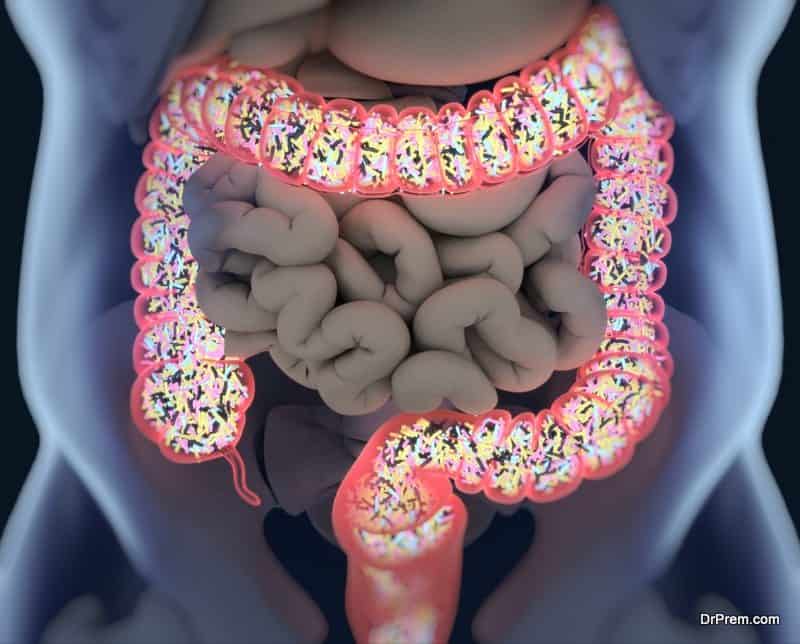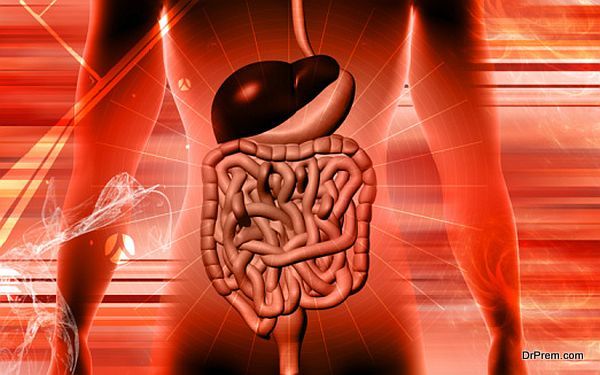Could there be a link between gut health and trouble sleeping? You might be wondering. The key to a great slumber lies in the beneficial bacteria residing in your gut. Your sleep, body weight, and gut health – all are related to each other.

Currently, around 35% of Americans suffer from sleeplessness, touching a staggering number of 70 million, out of which 80% goes undiagnosed. Sleep disorder precipitates into perennial fatigue, teeth grinding, and deterioration in immunity system.
Establishing the role of gut health and trouble sleeping:
The microbiome in your intestines comprising of a trillion of beneficial bacteria acts as an amazing sleep inducer. An excellent channel of communication exists between these microscopic organisms and your brain via the vagus nerve. This reveals a lot about the underlying relationship between gut health and trouble sleeping.
Sleep and gut health is so deeply related that it can be understood by the following benefits bestowed by the gut bacteria:
• They fight off your stress level:
Intestinal bacteria are capable of producing and controlling important hormones monitoring the functioning of neurotransmitters which have a soothing effect. They are even competent to mitigate the cortisol level, which causes worry. They also produce enough GABA, the neurotransmitter with a calming effect, which is vital for a peaceful restorative slumber.
• Synchronizing the sleep-wake cycle:

Light and darkness have a profound impact on your sleep pattern. In fact, it is the melatonin which induces sleep and its production in the pineal gland is regulated by phases of light and darkness encountered by you. Healthy bacterial population in the intestine boosts melatonin synthesis, further establishing the relation between the sleep and gut health. The progenitor of melatonin is tryptophan, the amino acid that helps set the sleep-wake cycle in perfect equilibrium.
• Keeping body’s circadian rhythm in harmony:

When your biological rhythm gets hampered, memory loss, irritability, impairment of cognitive function, disturbed sleep, and loss of motor function are the outcomes. Fortunately, your gut microbes have their own rhythm that is interwoven with your circadian rhythm. A change in either one of them affects the other. Therefore, sleep and gut health are so intimately related that only a perfectly healthy body can host bacteria contributing to quality sleep.
The experiment proves the influence of gut flora on circadian rhythm through gene expressions in the liver:
In this study, two types of mice population were selected. One group was free from bacteria and the other group had a normal count of microbes. Population carrying bacteria exhibited normal rhythm in flora as the day passed. However, the by-products of gut flora fermentation showed that the volume and activities of different strains underwent alterations over a 24 hours cycle.
This had a substantial bearing on circadian gene expression in liver. While in the microbe-free mice, gut flora rhythm was in complete disarray. The startling fact was that with some modification in food, circadian gut flora rhythm in microbe-free mice could be brought to coherence.
How to fix balance between the gut health and trouble sleeping?
The following tips could be helpful:
- Regular intake of probiotic supplements.
- Have enough natural prebiotic sources of food to maintain a perfect gut health. Apples, oats, asparagus, avocados, and honey would be great probiotic food.
- Steer clear of environmental toxins, pesticides, and antibiotics that would harm gut bacteria.
- Regular physical exercise can increase your gut bacteria by 40%!
- Level of anxiety should be reduced at all costs.
- Set a proper schedule for your meals to synchronize it with your circadian rhythm.
- If you are suffering from the gut disorder, try for a remedy with a dental diet 40 days meal program.
- Work out a program to monitor your Vitamin D level. Vitamin D is sourced from solar energy and improves sleep quality.
Studies on gut health and trouble sleeping show that they operate along a center line. They affect each other in a coordinated or opposing relationship. You must be aware of this and maintain your gut health accordingly. They will ensure your circadian rhythm is not disrupted, spoiling your quality sleep.










